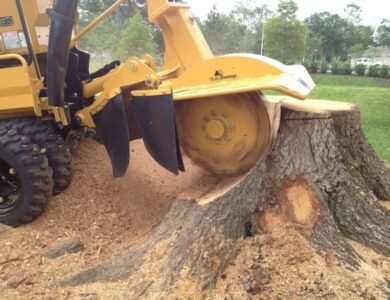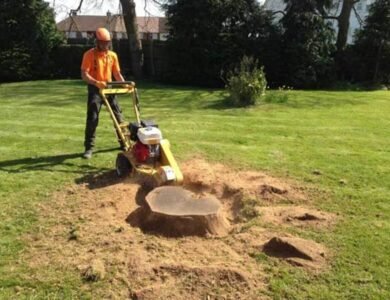A Comprehensive Home Inspector Training Program

Are you considering a career as a home inspector? Or perhaps you’re already in the industry but looking to enhance your skills and knowledge? Regardless of your current level of expertise, pursuing home inspector training is an investment in your professional growth and success. In this comprehensive blog post, we’ll explore the ins and outs of home inspector training programs, equipping you with the knowledge you need to make an informed decision.
Why Pursue Home Inspector Training?
As a home inspector, your role is crucial in ensuring the safety and quality of residential properties. Your expertise is relied upon by homebuyers, sellers, and real estate professionals alike. Investing in a comprehensive home inspector training program can provide numerous benefits:
- Gain In-Depth Knowledge: A well-structured training program will cover a wide range of topics, from building codes and construction methods to identifying defects and potential hazards. This knowledge is essential for conducting thorough and accurate home inspections.
- Enhance Credibility: Completing a reputable home inspector training program demonstrates your commitment to professionalism and ongoing education. This can help you stand out in a competitive market and build trust with clients.
- Stay Up-to-Date: The home inspection industry is constantly evolving, with new building materials, technologies, and regulations emerging regularly. Quality training programs ensure you stay informed about the latest developments and best practices.
- Build Confidence: Comprehensive training equips you with the skills and confidence to handle even the most complex home inspections. This can lead to better job satisfaction and increased earning potential.
What to Expect from a Comprehensive Home Inspector Training Program
A well-rounded home inspector training program should cover both theoretical and practical aspects of the profession. Here’s what you can typically expect:
Classroom Instruction
Classroom instruction is typically the foundation of any home inspector training program. This component covers a wide range of topics, including:
- Building codes and construction methods
- Electrical, plumbing, and HVAC systems
- Structural components and materials
- Environmental hazards and safety concerns
- Legal and ethical responsibilities
Experienced instructors with hands-on industry experience often lead these classes, ensuring you receive accurate and up-to-date information.
Field Training and Inspections
While classroom learning is essential, practical experience is equally important. Most comprehensive home inspector training programs include field training and supervised inspections, allowing you to apply your newfound knowledge in real-world scenarios. This hands-on component typically involves:
- Conducting mock inspections under the guidance of experienced inspectors
- Learning how to use specialized tools and equipment
- Practicing report writing and documentation
- Developing communication skills for interacting with clients
Professional Development and Ongoing Education
The best home inspector training programs don’t stop at the initial certification. They often provide resources and opportunities for ongoing professional development, such as:
- Continuing education courses and seminars
- Access to industry publications and resources
- Networking events and opportunities to connect with other professionals
- Mentorship programs and support systems
Staying up-to-date with industry changes and best practices is crucial for maintaining your competitive edge and delivering high-quality services.
Choosing the Right Home Inspector Training Program
With numerous training programs available, it can be challenging to determine which one is right for you. Here are some factors to consider:
- Accreditation and Recognition: Look for programs accredited by reputable organizations, such as the International Association of Certified Home Inspectors (InterNACHI) or the American Society of Home Inspectors (ASHI). These accreditations ensure the program meets industry standards and provides comprehensive training.
- Instructor Qualifications: Research the instructors’ backgrounds and experience levels. Ideally, they should have extensive practical experience as home inspectors and a proven track record of delivering high-quality education.
- Curriculum Comprehensiveness: Evaluate the program’s curriculum to ensure it covers all essential aspects of home inspection, including building systems, construction methods, legal considerations, and report writing.
- Hands-on Training Opportunities: Prioritize programs that offer ample opportunities for field training and supervised inspections. This practical experience is invaluable in preparing you for real-world scenarios.
- Continuing Education and Support: Consider programs that provide ongoing support, resources, and continuing education opportunities. This can help you stay up-to-date with industry developments and maintain your professional edge.
- Flexibility and Convenience: If you’re already working or have other commitments, look for programs that offer flexible schedules or online learning options to accommodate your needs.
Conclusion
Pursuing a comprehensive home inspector training program is a critical step in developing the skills and knowledge necessary to succeed in this dynamic and rewarding profession. By investing in your education, you’ll gain the confidence to conduct thorough and accurate inspections, build credibility with clients, and stay ahead of industry trends. Remember, the right training program can make all the difference in your journey from novice to expert home inspector.
The specific therapy might vary depending upon the kind of tablet ingested and also ottomax+ the intensity of the overdose.


